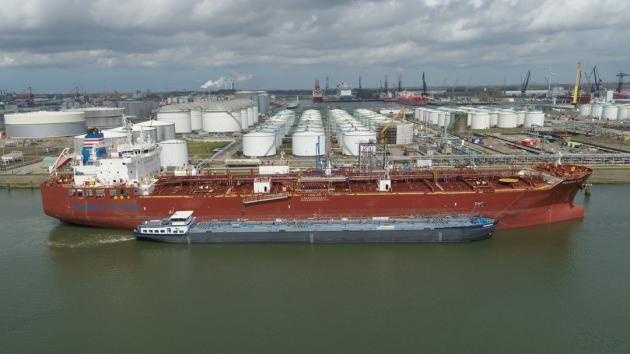In addition to helping its 12 member ports decarbonize, the World Ports Climate Action Program (WPCAP) has contributed to the faster adoption of sustainability standards and measures in the wider shipping industry. That was the main takeaway from the 4th meeting of CEO’s and working group members of WPCAP.
The meeting focused on the work done to improve efficiency, aid the adoption of shore power, and accelerate the transition to clean shipping fuels.
Members also discussed the decarbonization of cargo-handling equipment, noting, in particular, the potential of hydrogen fuel cells as a zero-emission technology as this can deliver high performance with relatively low additional requirements for infrastructure investments.
Large potential for global efficiency gains
Efficiency continues to be seen as low-hanging fruit for decarbonization efforts, and the significant progress made in setting standards to improve efficiency has elicited positive responses from both WPCAP members and the wider shipping community.
The WPCAP working group focused on the top efficiency measures identified in a survey among almost 600 industry experts from more than 100 countries.
Members collaborated with the IMO to calculate the CO2 impact of different efficiency measures and developed a guide and standards for ports to implement just-in-time arrivals and deliver significant fuel savings.
In addition, the members worked with the International Hydrographic Organization (IHO) and other bodies to develop a platform for sharing nautical data between ports, improve ship-berth compatibility and further improve efficiency.
Shore power adoption continues to rise
Of all the topics discussed, shore power saw perhaps the biggest change in attitude in the shipping industry in the past five years, thanks in part to the work done by different WPCAP members.
Jarl Schoemaker, Chair of the power-to-ship working group and Senior advisor Environmental Management at the Port of Rotterdam, noted that while shore power has been around for a long time, the roll-out was traditionally hampered by high investment costs due to low adoption rates.
To help create a breakthrough in shore power adaption, WPCAP members made an inventory of available technology and exchanged best practices, and demonstrated the benefits of collaboration which resulted in an MoU on the use of shore power for container vessels and cruise ships by 2028.
They also commissioned a joint study, which showed that even with the rise of alternative fuels from renewable sources, shore power is likely to remain the best option to reduce emissions from large vessels during berth.
Port readiness for clean shipping fuels
The transition towards clean shipping fuels was a big topic for all WPCAP members and is expected to be the main focus of multiple initiatives in the coming years, including Green Corridor projects launched by several WPCAP members across the globe.
Barriers to the wider adoption of clean fuels include uncertainties around fuel availability, concerns about infrastructure, and the technical readiness at individual ports.
To address this, the WPCAP members group joined forces with the IAPH Clean Marine Fuels working group to develop an assessment and communications tool to align global conversations about the availability of clean fuels at ports.
It is important for ports to be able to say to ship owners: ‘we will be ready with this fuel, at this time, and this is what you can expect from us’ – and this tool does just that
said Namrata Nadkarni, chair of the working group on sustainable marine fuels and founder of maritime consultancy Intent Communications






























































